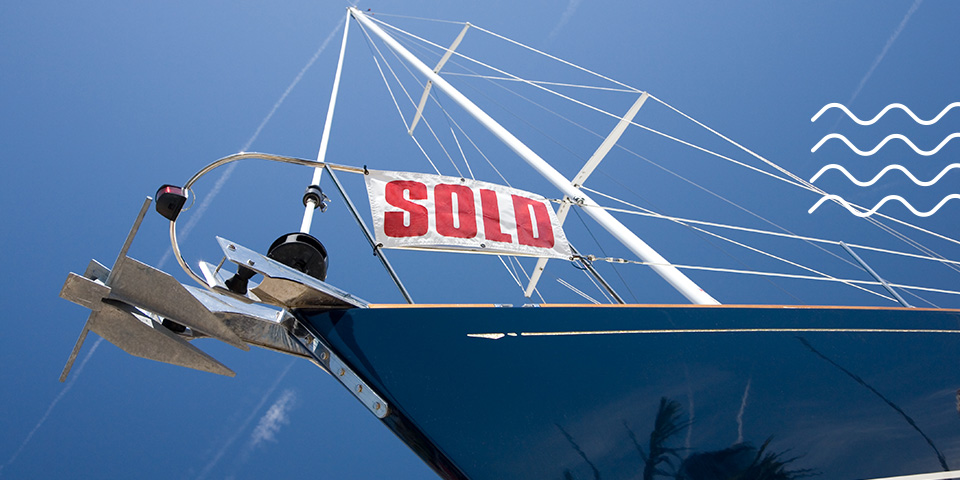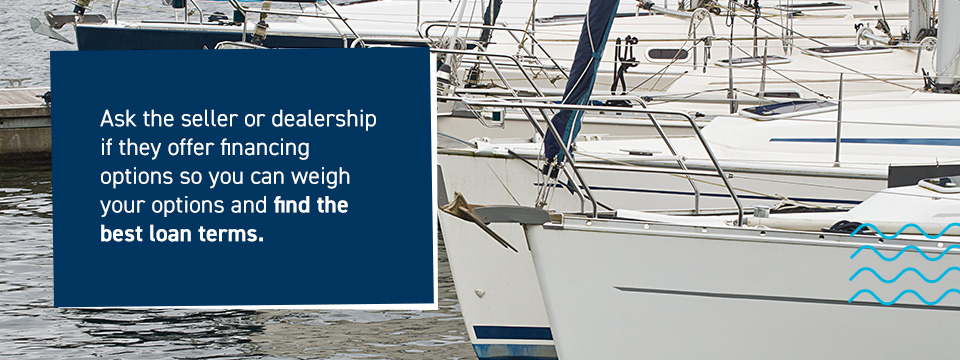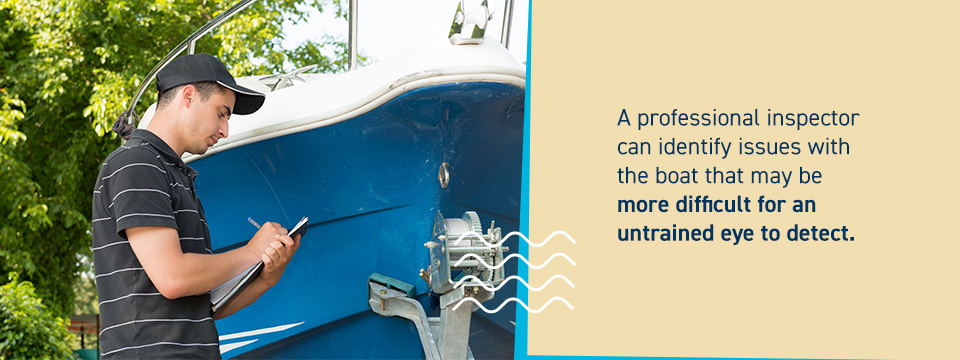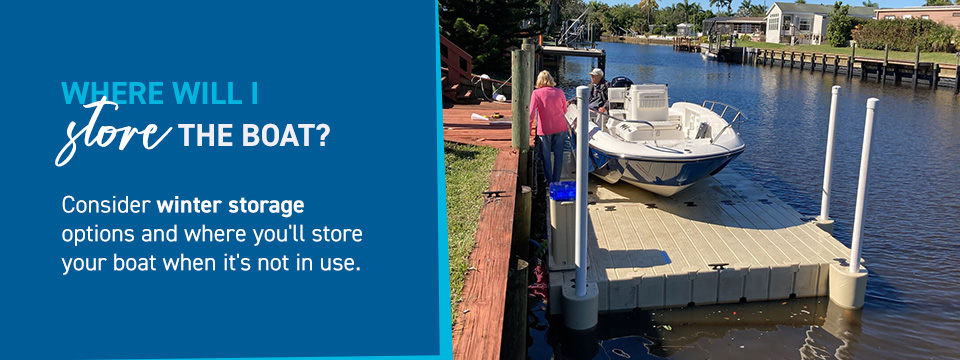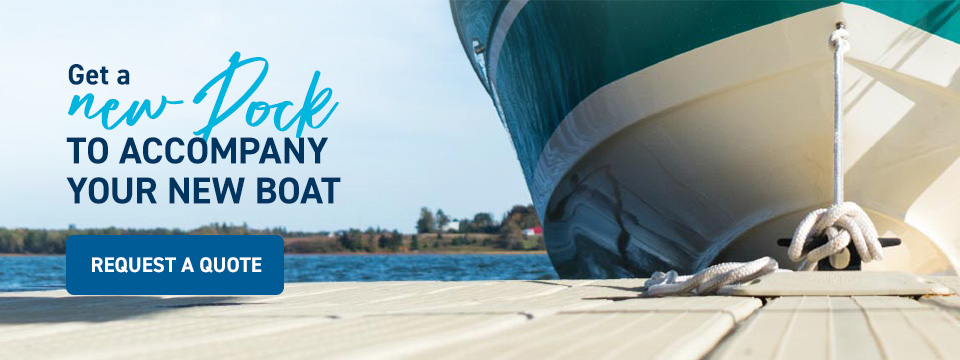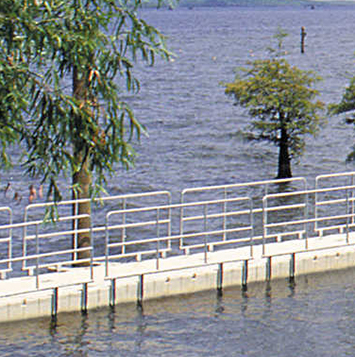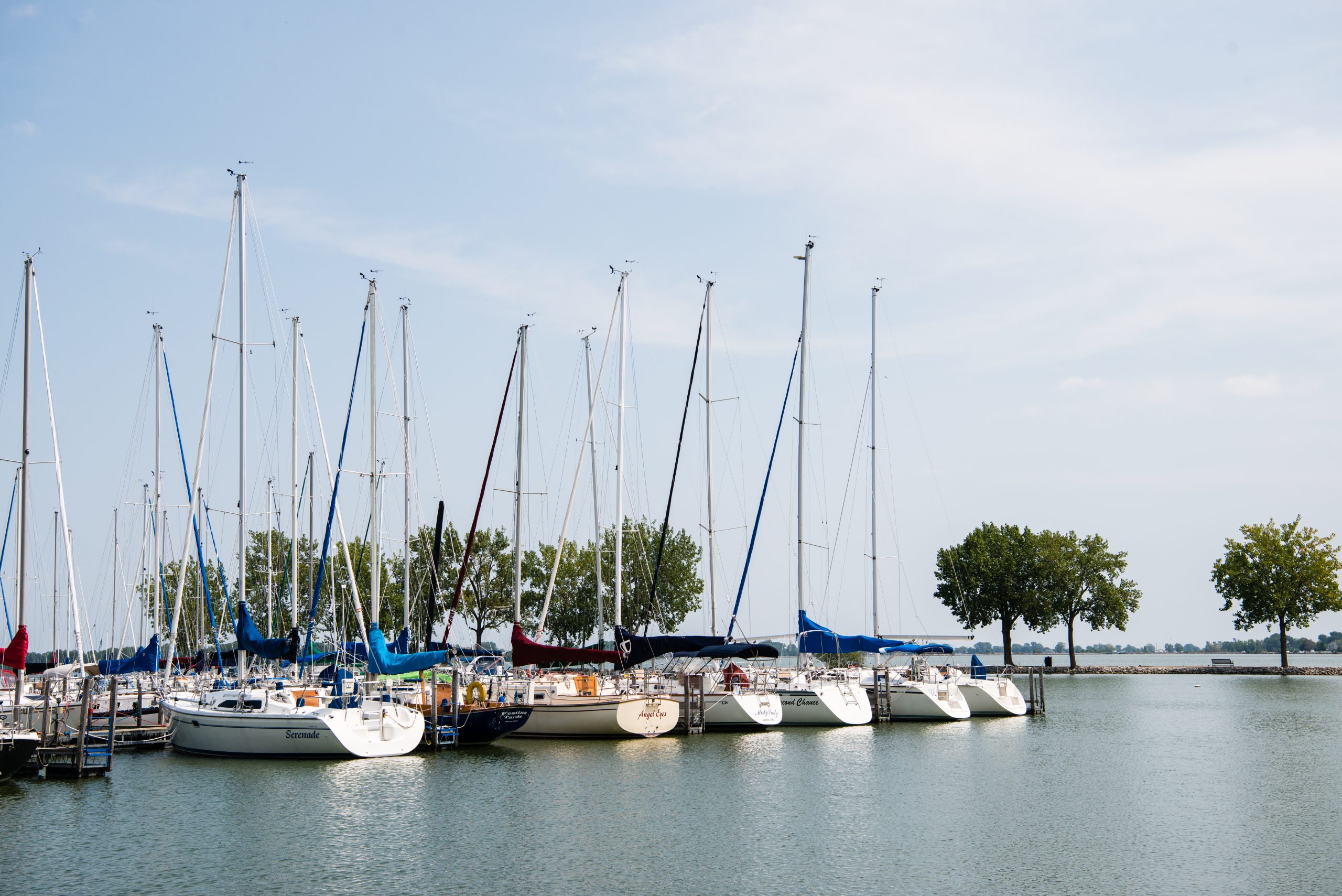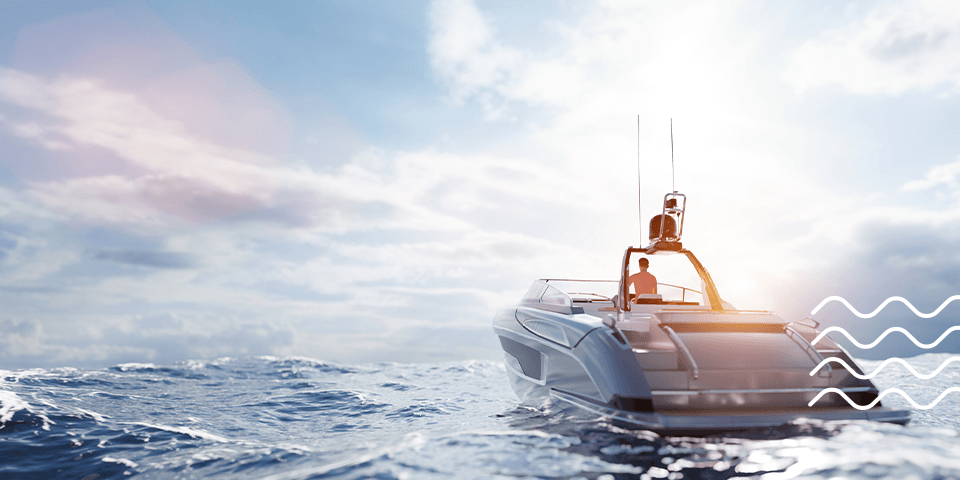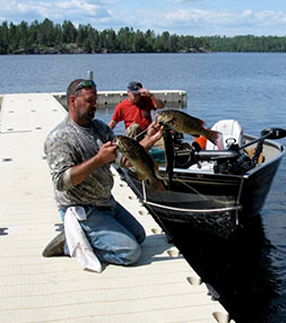Filters
Questions to Ask When Buying a New Boat
Boating is a popular pastime, as boaters can enjoy various water activities like fishing or watersports. While everyone has a different reason for wanting a boat, asking the right questions can help you find the best boat to purchase. Whether you’re purchasing your first boat or are interested in an upgrade, asking the seller and yourself the right questions is important.
Questions to Ask Brokers or Sellers When Buying a New Boat
Whether you’re considering buying a boat from a private seller or a dealership, knowing what to ask when buying a boat can help you find the best boat for your needs. You should ask questions that will help you learn as much as possible about the boat and its history to make an informed purchase. Here’s what to know before buying a boat.
Can I Test Drive the Boat?
Just as you’d test drive a car, you should test drive a boat before buying it. Test drives, also called sea trials in the boating industry, allow you to get a feel for how the boat runs. You’ll be able to test every aspect of the boat to detect any potential issues or things you may not like. Test drives are essential, regardless of what type of boat you’re buying. Since boats can be significant investments, it’s important that you invest in a boat that you’re comfortable driving.
You rarely will be denied a request to test drive a potential boat, though if you are, you should consider it a red flag. Denial to test drive a boat could indicate the seller is deceitful or trying to hide something wrong with the boat. Without a test drive, major issues could go undetected until after the sale is final, and you’re stuck with a huge repair bill.
Is the Boat Under Warranty?
New boats typically come with a manufacturer’s warranty that helps cover the costs of major boat parts like the deck or hull if damage occurs during the warranty coverage. If you’re buying a new boat, be sure to ask what warranties are available and what they cover.
If you’re buying a used boat, ask if the boat is still under warranty and, if it is, if the warranty can be transferred to a new owner. If you’re purchasing a new or used boat from a dealership, they often offer their own warranties that you may want to ask about.
What Are My Financing Options?
As mentioned above, boats are a major investment. Most prospective boat owners are unable to pay for a new boat in full at the moment of sale. Rather, you’ll likely rely on boat financing to get a loan for the cost of the boat. You can get financing in numerous ways, including through a bank, online lender or dealership.
Where you get financing from and the terms and rates you qualify for will most often depend on your credit score. Be sure to ask the seller or dealership if they offer financing options so you can weigh your options and find the best loan terms.
What Are the Maintenance Needs and Costs?
While you may be focused on the initial price tag, you should also make yourself aware of your potential boat’s maintenance needs and costs. Different boat types and materials require different service needs, which you should be aware of before purchasing the boat. You should also ask how much those maintenance needs will cost, as routine maintenance is critical for a boat to remain in quality condition. Maintenance costs are ongoing, so you’ll need to be prepared to cover those costs.
What Materials Is the Boat Made of?
Boats are made from various materials, from the hull to the seats. A boat’s materials can affect its quality, performance and maintenance needs, making it essential to find out the boat’s interior and exterior materials. For example, fiberglass and aluminum are two popular hull materials, though they have different costs and fiberglass needs to be waxed regularly, unlike aluminum. Understanding the boat’s materials allows you to maintain your boat better and anticipate costs and overall quality.
How Has the Boat Been Used and Maintained?
If you’re buying a new boat, you likely won’t have to worry about its previous use because it likely doesn’t have any. However, buying a used boat is a different story. In this case, you should ask how the boat was previously used, how many hours are on the engine and whether the seller has service logs for the boat. Understanding the boat’s history can help you determine its current condition and value. If a boat isn’t properly maintained, it might have several issues and a lower value.
Find out how the boat has been used and maintained to help determine if it’s the right purchase for you.
Has the Boat Undergone Any Major Repairs or Modifications?
Similar to asking about previous maintenance needs, consider whether a boat has needed any major repairs or has been modified. If the repairs were made properly, they may be no cause for worry, though you should still be aware of what was done in case issues arise in the future. Repairs and modifications can also alter a boat’s value, which you’ll want to keep in mind when considering prices.
Can I Have the Boat Professionally Inspected?
When buying a used boat, you should always consider having it professionally inspected before making any deals. A professional inspector can identify issues with the boat that may be more difficult for an untrained eye to detect. Having a professional look at your boat can also give you confidence that the vessel you’re purchasing is in reliable condition. Rather than be surprised by issues shortly after the purchase, find out what you need to know beforehand.
Where Was the Boat Previously Stored?
Boat storage is a crucial, yet often overlooked, aspect of maintaining a boat. Asking where the boat was previously stored can give you a strong indication of the level of maintenance the boat received in the off-season. For example, dry storage allows a boat owner to inspect and maintain the parts of the boat that are typically submerged, while wet storage can lead to various issues and general wear and tear. Considering a boat’s storage history may help you determine its condition.
Questions to Ask Yourself Before Buying a New Boat
Purchasing a boat is a big decision and requires some self-reflection. In addition to asking the seller or broker questions about the boat, you should ask yourself a series of questions to ensure you’re prepared and making smart financial choices. Whether you’re a first-time boat owner or want to upgrade, reflect on these questions to help guide your boat-buying decisions.
Why Do I Want a Boat?
Determining your intended use for a boat can help you narrow down the types of boats you should consider buying. For example, are you interested in fishing, watersports or entertaining friends and family? While some boats may allow you to do all these activities to some degree, boat shopping with a specific use in mind helps you find a boat best suited for your needs.
Is This Purchase Practical and Realistic for Me?
While spending the day on a boat is a nice luxury, you should consider whether owning a boat is practical and realistic for your lifestyle, budget and family. For example, how often would you get to use the boat? Owning a boat may not be the most practical option if you only go to the lake once or twice a year.
If you can’t justify purchasing a boat or are unsure if it’s the right choice for you, consider renting a boat for the few times you go out on the water or to experience what boat ownership could look like.
Can I Afford the Associated Costs?
Boats come with numerous additional costs beyond the sticker price. Maintenance is one of the biggest costs associated with boat ownership and should be factored into your budget. On top of that, you should expect to pay for boating insurance, taxes, registration, updates, storage fees and safety accessories. You may also want to consider who should perform annual maintenance on your boat so you’re prepared when the time comes. You’ll also need to get a boating license if you don’t already have one.
Consider your budget and what you can comfortably afford — the last thing you want is to purchase a boat you cannot pay for.
Should I Buy a New or Used Boat?
You’ll also want to consider whether you’ll be buying a new or used boat. Each option has pros and cons, though your budget is typically the biggest factor in buying a new or used boat. New boats have higher price tags because they typically have newer features and technologies and fewer signs of wear and tear. If your budget allows, newer boats can be reliable because you’re the first owner.
On the other hand, many potential boat owners consider used boats a more cost-effective option. While used boats may lack the most updated technologies or features and have some wear and tear, they can allow you to own a boat for a much lower cost.
Where Will I Store the Boat?
Just as previous storage is important in what to know when buying a boat, where you store the boat after purchasing it is also important to consider. Depending on your situation, you may be able to dock your boat where you’ll use it during the boating season. Otherwise, you may need to haul your boat back and forth, requiring a trailer and space to park the trailer. You should also consider winter storage options and where you’ll store your boat when it’s not in use.
Where Will I Use the Boat?
Knowing where you will use the boat can help you plan several aspects of boat ownership, including where you’ll store it and how often you’ll use it. For example, if you have a vacation house on a lake, you’ll likely use your boat here full-time. Other boat owners use their boats in various places and can take their boats with them as needed.
Where you’ll use your boat can also determine the type and size of the boat you buy. For example, you wouldn’t buy a yacht to go fishing on the river.
Other Tips on How to Buy a Boat
Knowing how to buy a new boat takes significant consideration to make an informed purchase. In addition to the questions above, keep the following tips in mind when boat shopping.
Shop Around for the Best Prices
As you search for a new boat, remember that it’s best to shop around to find the best prices and where to buy a boat. Several factors can affect the price of a boat, including whether it’s used or new, the manufacturer’s suggested retail price (MSRP), features, warranties, add-ons, accessories, condition and upgrades. Other factors that can affect the price include how you’re paying for the boat and whether the boat is being picked up or delivered to you.
Boat prices can also vary from seller to seller. Shopping around allows you to find the best deal for your money and determine where you should buy your boat.
Stick to Your Budget
You should set and stick to a budget when making any major purchase, including a boat. A boat budget helps you determine what you can afford and are comfortable spending. Without a strict budget, it’s easy to get carried away and spend more than you should. Having a budget sets a limit for you and for the sellers you’re working with.
Avoid Costly Add-Ons
Especially when buying a boat from a dealership, you may be tempted to add several additional features, accessories or packages to your boat. Add-ons may seem like a great idea, though they come at a price. If you have extra room in your budget, add away. However, if you’re trying to save money where you can or are tight on your budget, it’s best to avoid costly add-ons.
Utilize Cash
Whether providing a down payment or negotiating with a private seller, offering cash can help you get the price you want. Cash sales go through much faster, giving the seller confidence that you’ll pay for the boat. While few people can purchase a new boat in full cash, consider how much you could offer in cash and see where it gets you with the seller.
Get a New Dock to Accompany Your New Boat From EZ Dock
With a waterfront property, you can use your new boat whenever you want. To make your property and boat more easily and readily accessible, consider getting a floating dock from EZ Dock. Our docks are made of polyethylene, so they’re water-resistant and safe for the environment and your family. With an EZ Dock floating dock, you can make docking and accessing your boat safe and effective.
Browse our selection of docks, ports and boat lifts or request a quote to get started.

